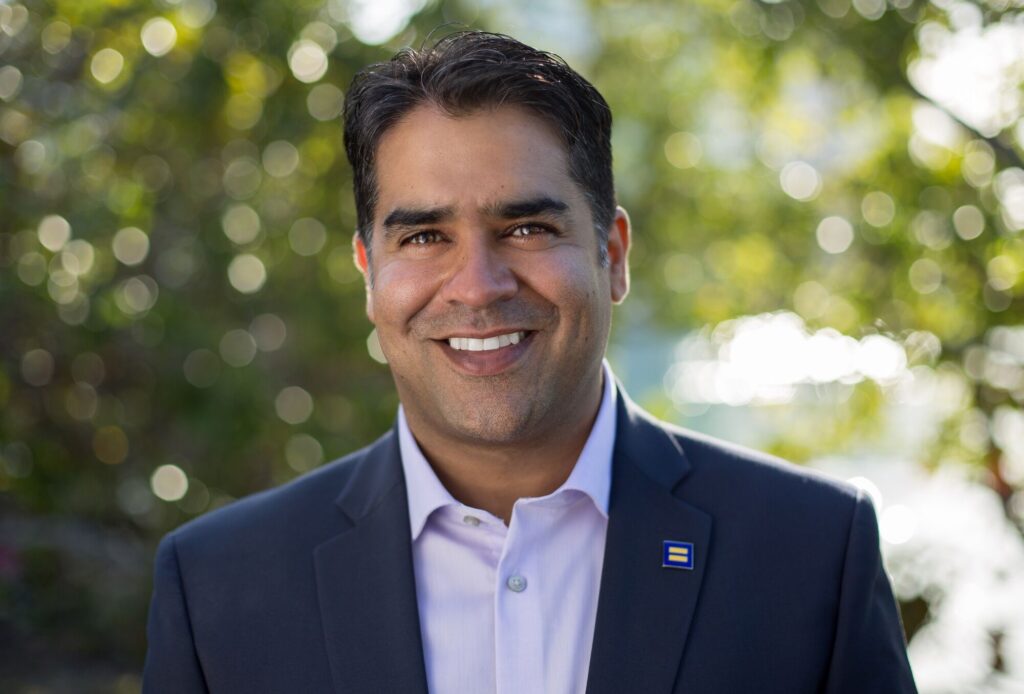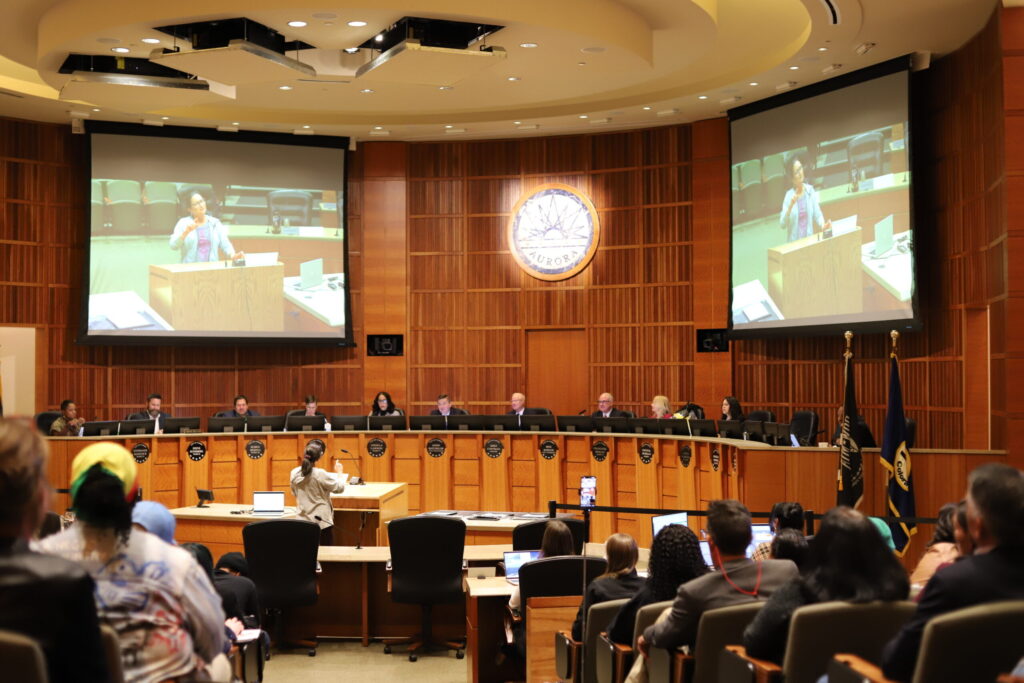Fracking foes hit wall with legislature as Democrats sidestep fractious debate
The anti-fracking movement’s momentum ground to a halt in this year’s legislative session as Democrats opted to present a united front rather than aggravate a party schism by igniting a debate on oil and gas development.
The General Assembly took the safe route by approving funding for recommendations made in February by the governor’s Oil and Gas Task Force. Those include new inspectors and monitors for the Colorado Oil and Gas Conservation Commission and Department of Public Health and Environment.
And that was about it – until Wednesday, when the Senate gave last-minute approval to a bill requiring ballot petitions and initiatives to be accompanied by a fiscal impact statement, which is expected to hamper the chances of anti-fracking ballot efforts.
As a result, the newly formed coalition Coloradans Against Fracking gave this year’s legislative session an “F” at a Wednesday press conference, while supporters of the oil and gas industry were all smiles.
“I’d say we’re very happy and we appreciate having worked with legislators on both sides of the aisle and with the governor,” said Stan Dempsey, president of Colorado Petroleum Association. “I think they did good work.”
That Democratic legislators managed to avoid drawing further attention to the party’s fracture on fracking came as a victory for Democratic Gov. John Hickenlooper, an industry supporter who formed the task force in August to stave off a proposed local-control initiative backed by Rep. Jared Polis.
“There was a bit of drama at the legislature this year, and it wasn’t oil and gas,” said Denver political analyst Floyd Ciruli. “And I think that’s very positive for him [Hickenlooper]. I think Democrats, some of whom up there would be inclined to make this a much more dramatic issue, chose not to.”
Democrats remain divided on hydraulic fracturing, but a couple of political shifts may have dampened their enthusiasm for a fracking floor fight. First, Republicans gained a one-vote majority in the state Senate in November, meaning that any significant local-control legislation was doomed to fail.
Second, Sen. Michael Bennet has popped up on recent lists of endangered Senate incumbents for 2016, making it even more important for Democrats to avoid provoking the oil and gas industry into uncorking a gusher of campaign cash that could wind up benefiting Republicans.
“The same political conundrum that existed in 2014 is likely to exist in 2016,” said Ciruli, referring to last year’s Senate election, in which Sen. Mark Udall became tangled in an intraparty fracking squabble.
House Speaker Dickey Lee Hullinghorst isn’t what anyone would describe as a big fan of the industry, but “under these circumstances, had she passed something, it would have been totally symbolic,” said Ciruli.
“It would have been defeated in the Senate,” he said. “And I think she got into some collaborative discussions and wisely, I think, in terms of the big picture for Democrats, came to the conclusion that this is not the time to do something symbolic.”
The session came as the latest disappointment for the anti-fracking coalition, which saw its hopes for a local-control initiative dashed in August, followed by task-force recommendations that fell well short of the movement’s goals.
“I would call what has come out of this year’s legislative session and Gov. Hickenlooper’s task force a complete failure for the citizens of Colorado,” said Kelly Giddens, organizer of Citizens for a Healthy Fort Collins, in a statement. “I had hoped that those in charge of protecting the citizens of Colorado would have done a better job of putting the interests of the people of Colorado before profits.”
Her group was behind the successful 2013 ballot fight for a five-year moratorium in Fort Collins, which a judge overturned last year. She says she continues to support the idea of a “time out” over an outright ban pending the results of “impact studies on public health, safety, and property values.”
Simon Lomax, Western director of pro-industry group Energy in Depth, doesn’t buy it. “For all their talk about local bans, the anti-fracking activists made it crystal clear during the past few months that they actually want an outright or de facto statewide ban,” he said in a statement.
The task force, which included local leaders, industry representatives and environmentalists, approved nine recommendations to be enacted by state agencies such as the COGCC. The list includes increased collaboration between local governments and operators, adding oil and gas operations to the local planning process and creating an oil and gas information clearinghouse.
“The outcome of the oil and gas task force in February, and the balance of the legislative session since then, shows just how isolated ‘ban fracking’ groups have become in statewide politics,” said Lomax.
At least one anti-fracking ballot measure is already in the signature-gathering stage, but Polis isn’t involved with it. The Democratic congressman has indicated in recent interviews that he considers it “premature at this point to be talking about potential ballot initiatives,” said his spokeswoman Kristin Lynch in an April statement.
“He remains committed to continuing to fight to bring much-needed relief to constituents harmed by fracking,” she said.
Polis agreed to pull his ballot campaign under enormous pressure from state and national Democrats, who feared the industry’s vow to spend $50 million fighting the measure would threaten Democrats up and down the ticket, starting with Udall.
Udall lost anyway, a fate that Democrats fear could befall Bennet if an anti-fracking measure makes it onto the 2016 ballot. While Polis may not fund the effort, Colorado is seen as a ripe target by national environmental groups attempting to build on the success of December’s statewide fracking ban in New York.
“Will they find a financial angel, maybe from out of state? I know they’ll try,” said Ciruli. “I’ll be shocked if the anti-hydrocarbon folks and some of the directly affected NIMBYs wouldn’t give this a run, but from what we saw the last time, the volunteer effort did not make it.”
That’s where House Bill 1057 comes in. The measure requiring fiscal impact statements on ballot petitions and initiatives passed the House last week by a vote of 41-23, meaning that it garnered significant bipartisan support despite opposition from Colorado Common Cause on the left and the Independence Institute on the right.
“I think it’s a big win, and it’s a bigger win than many people realize,” said Dempsey.
Aside from showing voters the costs of restrictions on fracking, the measure allows the industry to go to court to challenge the estimates, he said.
“For those of us who are typically opponents of ballot measures, any time we can get into court, we’re happy,” said Dempsey.
Giddens said that the fiscal impact statement fails to take into account “the losses to the personal economies of families that will be impacted financially by the externalities created by this industry.”
“Thus, the financial impact statement will not be equitable and will be misleading to the public – another failure and wound to the fabric of democracy itself,” Giddens said. “This bill will make the check that was put in place to protect the people’s right to hold government accountable increasingly inaccessible to the public.”
For industry supporters, the session’s biggest disappointment was the failure of a bill brought by Republicans to compensate mineral-rights owners for lost royalties in localities that restrict hydraulic fracturing.
At the same time, Dempsey said he was relieved to see the defeat of legislation to review all tax credits and expenditure exemptions, which he described as a “loaded firearm that could have been aimed at us.”
If Democrats had kept control of the Senate, says Ciruli, the outcome could have been much different. It’s likely Democratic leaders would have come under pressure from environmental groups to introduce bills aimed at curtailing oil and gas production in the name of combating climate change.
“Had the Senate been under Democratic control, there just would have been a tremendous amount of pressure to deliver on something than just the minimal task force recommendations,” said Ciruli. “Whether it would have passed or not, we can’t say, but it probably would have been part of the drama of the session.”
In that sense, Hickenlooper and Bennet may owe the Senate Republicans. “Hickenlooper definitely does better [with a divided legislature],” Ciruli said. “And believe me, Mr. Bennet was probably watching this from early on.”
– valrichardson17@gmail.com













